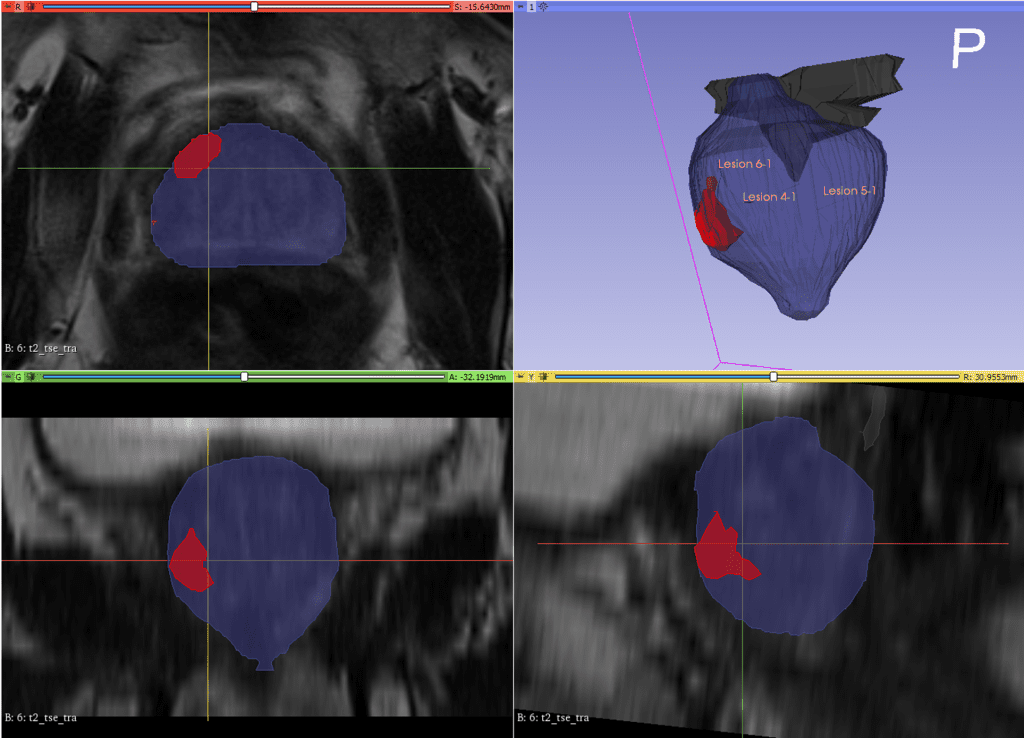
Lucida Medical gains CE marking for AI prostate cancer tech
pharmafile | June 1, 2021 | News story | Manufacturing and Production | AI, MRI, NHS, prostate cancer
Cambridge-based AI company, Lucida Medical, has received CE marking for its new machine learning-based prostate cancer detection software, Prostate Intelligence (Pi).
Lucida is one of the first companies in the world to commercialise artificial intelligence (AI) software to identify cancer in prostate MRI scans, with the marking enabling the technology to be deployed in the NHS and other European healthcare systems.
CE marking allows Pi to help radiologists assess and report MRI imaging studies, support the decision whether or not to biopsy, and accurately target biopsies where needed. The AI technology will improve the prostate cancer diagnostic pathway through more accurate analysis of the MRI scans.
In a statement, Lucida said that the Pi technology will also help providers offer RAPID ‘one stop shop’ diagnosis, enabling patients to have an MRI, report, and biopsy in one visit, and ensure consistent reporting quality across imaging networks.
MRI is now the preferred technique to assess a range of cancers, including prostate and metastatic disease. However, the current process of radiologists interpreting oncological MRI requires specialist training and is labour-intensive, creating a growing skills challenge. The shortfall in the UK radiologist workforce is forecast to reach 43% by 2024.
Prof Evis Sala, Co-founder and Chief Medical Officer of Lucida, Professor of Oncological Imaging at the University of Cambridge, said: “We are tremendously excited about this system and its potential to enhance our ability to detect cancer accurately and early.
“Now Pi has CE marking, we can look forward to working with hospitals and radiology and urology partners to bring it into clinical use. COVID-19 has created a serious backlog in cancer screening and Lucida Medical is well placed to help us clear this and further improve the care that we offer over the coming years.”
Prostate cancer is the most common cancer in men in Europe, Africa, and North and South America, with 1.4 million diagnosed worldwide each year and 375,000 deaths. Earlier detection can help reduce rates of advanced and metastatic disease and in turn greatly improve patients’ experience, outcomes, and life expectancy.
However, a 2017 study published in the Lancet found that radiologists can miss 12% of significant cancers on MRI and lead to 55% of individuals without significant cancer receiving a painful and costly biopsy. The study presented at ECR 2021 suggests that Lucida’s AI technology could help cut missed cancers to 7% and unnecessary biopsies to 24%, as well as making the process faster.
Professor Anwar Padhani, Professor of Cancer Imaging at the Institute of Cancer Research in London said: “AI is going to be essential to successfully deploy community-wide MRI-driven prostate cancer diagnosis. AI systems will enable the main benefits of biopsy avoidance are delivered while decreasing the variations in biopsy yields.
“Initial uses will be to support radiologists’ workflow including gland and target outlining tasks for fusion biopsies. Developing AI systems as clinical decision-making tools requires further efforts. The CE mark enables us to take the next steps.”
Kat Jenkins
Related Content

Digital mental health technologies – a valuable tool in supporting people with depression and anxiety
The potential benefits of digital mental health technology for managing depression, anxiety and stress, together …

Blue Earth announces first UK patient received prostate cancer injection
Blue Earth Therapeutics, a clinical-stage company specialising in targeted radiotherapeutics, has announced that the first …

Cellbyte raises $2.75m to fund pharma drug launch platform
Cellbyte has announced that it has raised $2.75m in seed funding for the streamlining of …






